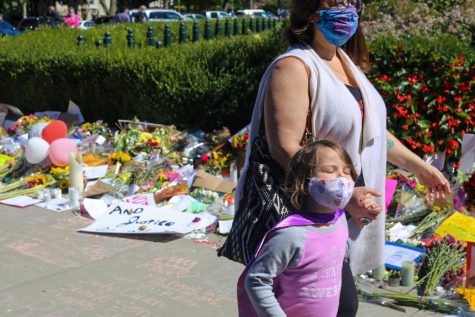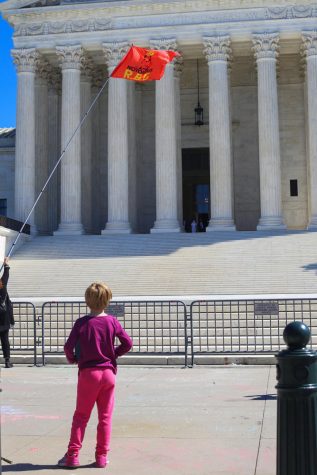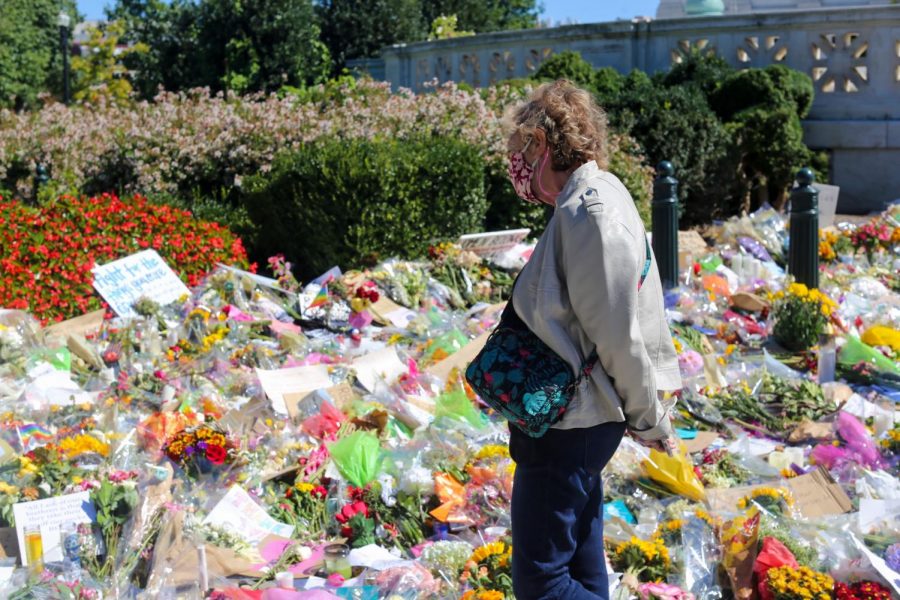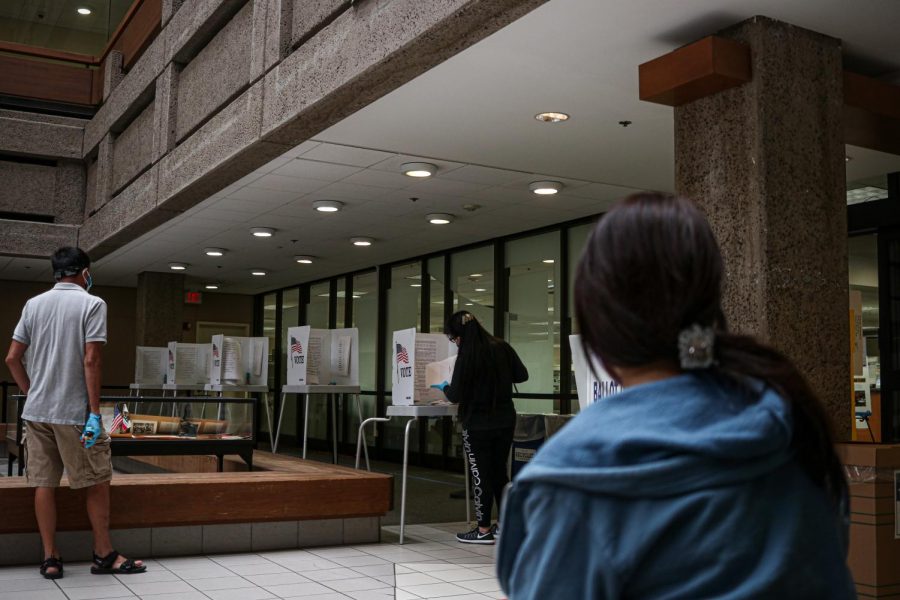WASHINGTON –– Along the marble steps of the Supreme Courthouse, a mother guides her daughter past businesswomen, college-aged girls, grandmothers and others who are in collective mourning over the death of Ruth Bader Ginsburg. They paused in front of a sea of flowers, notes and burnt-out candles, with her feet beneath rainbow scribbles of chalk on the concrete.

(Olivia Wynkoop)
“I grew up never knowing there was a glass ceiling because of you. Thank you RBG,” read one of the chalk messages.
The two overlook the remnants of Saturday night’s make-shift vigil for Ginsburg at the Supreme Courthouse, where she served as a U.S Supreme Court Justice for 27 years up until her death on September 19. Ginsburg was 87 years old.
Stephanie Deutsch, a resident of Capitol Hill for the past 45 years, said she’s never seen a gesture like this at the courthouse. She believes that this feels like a personal loss to many.
“There was something incredibly human about her,” Deutsch said.
She reflected on the time she saw Ginsburg and Steven Brier act in a local theatre production a few years ago. Ginsburg was known for her love of the arts. She often attended various performances in Washington, and even occasionally participated as an ensemble member just for fun.
“I mean, she’s so distinctive looking. You of course knew who it was immediately, and she was just in the crowd scene,” Deutsch said.
Dorothy Cantor, former president of the American Psychological Association and a women-focused political action committee co-founder, says that Ginsburg’s death is a terrible loss.
“We knew that she was very, very ill, but we hope that she survived until after the election. She was an amazing force,” Cantor said.
Cantor admired Ginsberg for her close friendship with conservative Supreme Court Justice Antonin Scalia, despite their polar-opposite views.
“She was the person who believed in getting things done, not debating too long about things,” Cantor said. “She accomplished an amazing amount for herself and for women.”

Strategic in her push for gender equality as an attorney for the ACLU, Ginsberg picked up male-focused gender discrimination cases like Weinberger v. Wiesenfeld to present to the Supreme Court. She knew that white, male judges would be more likely to rule women should be considered equal in the justice system when the case concerns a male plaintiff.
Ginsberg was also responsible for major strides in the equal wages movement after helping Obama pass the Lilly Ledbetter Equal Pay Act of 2009, which came about after her strong dissent in Lilly Ledbetter v. Goodyear Tire & Co.
American University students Sidney Rowell and Allie Higgens also stopped by the courthouse to honor her. They said they first were inspired by Ginsburg when the 2018 film “On the Basis of Sex” was released during their sophomore year.
“We all went with our friends and our roommates. After we saw it, in the metro we were like, ‘Should we be lawyers? We obviously aren’t doing enough in our lives right now,’” Higgens said.
Higgens said Ginsburg’s passing is especially relevant with the November election right around the corner. As a college student in the male-dominated field of international relations and with Trump in office, Higgens said she feels uneasy.
“It definitely makes an already tumultuous election cycle just that much more impactful. It’s just adding to the news, and adding to why we have to follow the election and then make sure we’re doing everything we can,” Higgens said.
Rowell worries that Ginsburg’s death is overridden by the fact she’s getting replaced. She feels like the conversation surrounding her death is more focused on Trump’s pick for the next U.S Supreme Court justice, rather than a celebration of her accomplishments.
“I’m glad there’s a memorial here and people think about her as a person and not just as a seat on the court,” Rowell said. “She’s beyond just who’s gonna replace her.”Ginsburg will lie for public viewing at the Supreme Courthouse September 23 & 24 available before her private burial at the Arlington National Cemetery next week.















